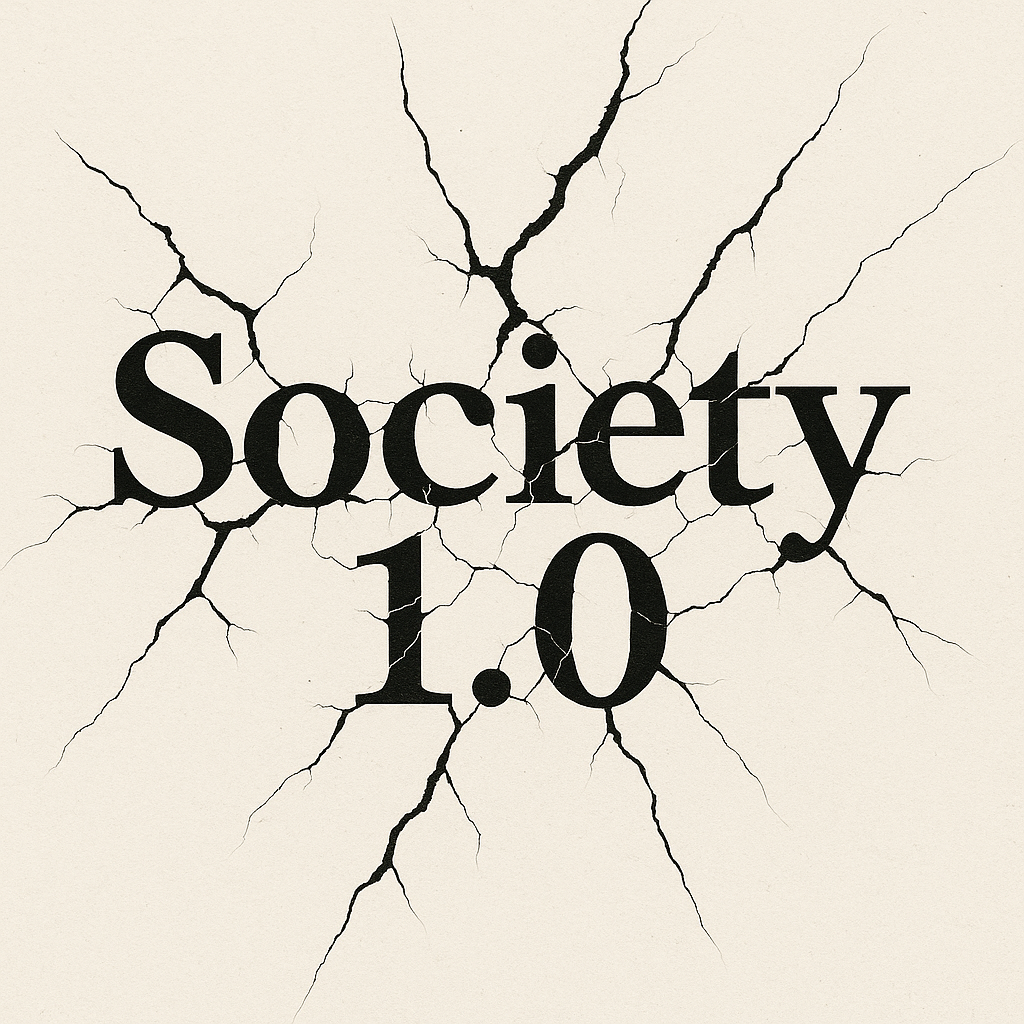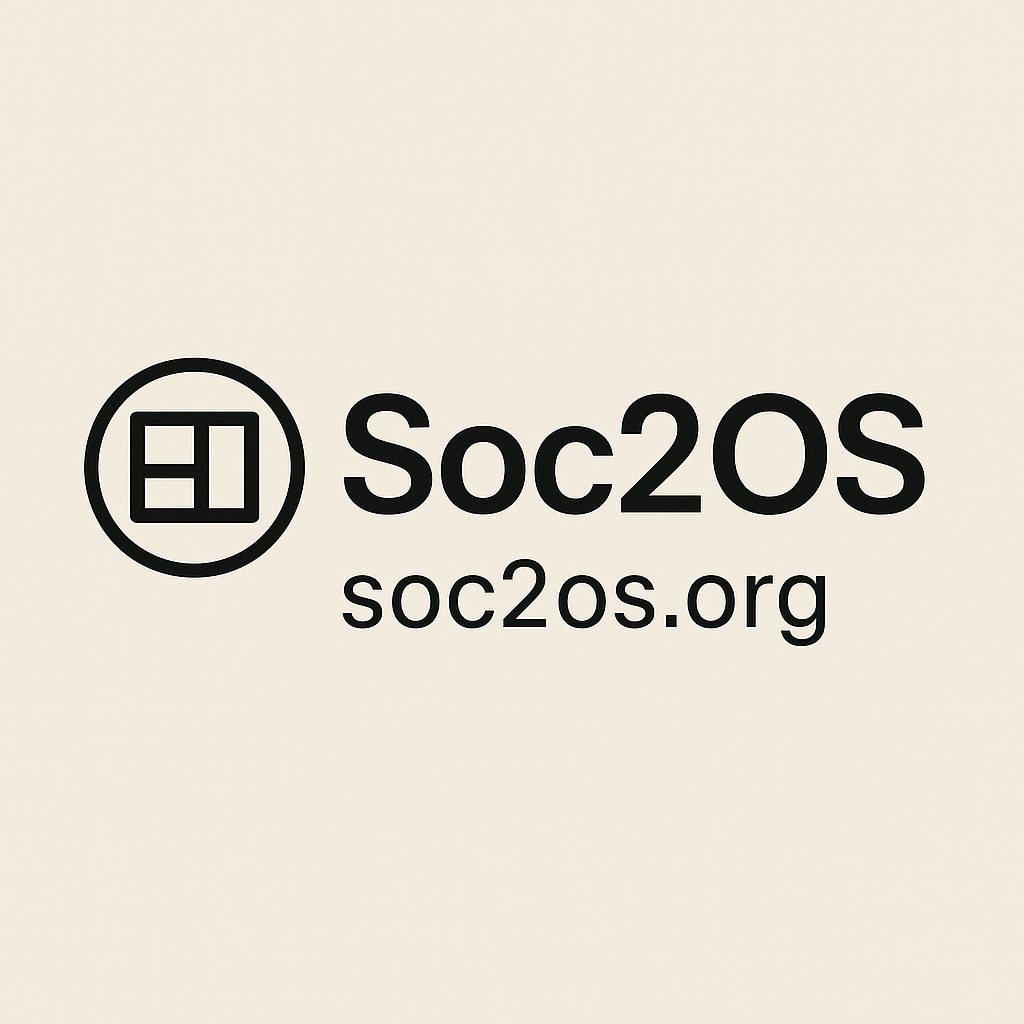
In the wealthiest cities on Earth, people step over human beings sleeping on sidewalks. Billionaires fly rockets into space while families live in tents. These are not isolated tragedies — there are cracks in society’s operating system.
Setting the Stage
Society 1.0 was built for an industrial world:
- Nation-states managing borders and armies.
- Capitalism organizing labor, capital, and trade.
- Universities training specialists for stable careers.
- Centralized institutions delivering healthcare, education, and justice.
This was revolutionary. Billions were lifted from subsistence, modern comforts spread, and human lifespans doubled. But the same systems that once delivered progress are now buckling under new realities.
Wealth inequality at record highs — billionaires add billions overnight while half the world lives paycheck to paycheck.
Globally, the richest 26 people now hold as much wealth as the poorest 3.8 billion combined (Oxfam).
As of 2023, the top 1% control nearly one-third of all U.S. wealth, while the bottom 50% own just 2%.”
Urban decay — malls hollowed out, main streets boarded up, neighborhoods fractured by sprawl.
Housing crises — entire generations locked out of ownership while vacant condos rise in every city skyline.
Healthcare collapse — month-long waits, impossible bills, and medical bankruptcies in the richest nation on Earth.
Burnout and despair — rising rates of depression, addiction, and loneliness, even as technology promises convenience.
Political paralysis — governments too slow, too captured, too gridlocked to respond to climate disasters or technological shocks.
Not a Matter of Opinion
You don’t need to be an economist or futurist to see it.
- When the water is rationed, when the rent doubles, when the ER bill bankrupts your neighbor — you know the system is breaking.
- When entire cities crumble into rust while capital pools offshore — you know the model no longer works.
- When politics feels like theater instead of governance — you know something deeper is wrong.
The cracks are not hidden. They are lived.
👉 These failings are systemic — not isolated accidents, not personal shortcomings, but the collapse of an old operating system.
As of 2023, the top 1% control nearly one-third of all U.S. wealth, while the bottom 50% own just 2%.”
The Visible Failure: Homelessness
Perhaps nothing shows the failure of Society 1.0 more clearly than homelessness.
Walk through Los Angeles, San Francisco, Portland, Seattle, or New York.
- Tent cities line sidewalks outside billion-dollar office towers.
- People shuffle like ghosts, untreated for addiction or mental illness, while others step past them on their way to brunch.
- Entire blocks become zones of despair while vacant luxury condos sit towering overhead.
It is not hidden. It is not rare. It is systemic failure. It is the most public evidence that Society 1.0 — with all its wealth and power — cannot guarantee even the dignity of shelter.
In a system that produces plenty, people still live with nothing.
Why It Matters
Homelessness isn’t just a social issue. It’s a civilizational mirror.
- It tells us our housing system treats shelter as an investment, not a right.
- It tells us our healthcare system leaves people untreated until collapse.
- It tells us our communities are fragmented enough to accept human suffering as background noise.
Everyone sees it. Few confront what it really means: Society 1.0 is failing in plain sight.
Society 1.0: The Old Operating System
The truth is, we are still running on an operating system designed for another era:
- Capitalism organized around factories, wages, and labor markets.
- Governments built to manage nation-states, armies, and borders.
- Universities structured to train workers for stable, lifelong careers.
- Suburbs, malls, and freeways designed for an age of cheap energy and endless land and continuous consumption.
For the industrial world of the 19th and 20th centuries, these systems worked. They delivered growth, stability, and opportunity.
But in the 21st century — with AI disrupting labor, climate destabilizing resources, and inequality hollowing out social trust — the same systems now produce failure-at-scale.
1. Work & Capitalism
🚂 The Industrial Revolution: Birth of Society 1.0
The Industrial Revolution (18th–19th centuries) was the launchpad for Society 1.0.
- Factories and machines replaced artisanal labor, massively scaling production.
- Capitalism became the dominant operating system, rewarding efficiency, innovation, and competition.
- Labor for wages became the universal pathway to survival and mobility.
- Global trade networks expanded, tying nations together in shared markets.
For its time, this was a seismic leap forward. Cities grew, wealth multiplied, and human lifespans lengthened.
💼 Work as the Engine of Value
In Society 1.0, the formula was simple:
Labor → Wages → Consumption → Growth.
- If you worked, you survived.
- If you worked harder, you could climb into comfort or wealth.
- The system was self-reinforcing: more workers = more production = more profits = more jobs.
This was the backbone of capitalism’s success: growth built on human work.
⚠️ The 21st Century Collision
That formula no longer holds.
- Automation replaced manual labor in factories.
- Globalization outsourced manufacturing to the lowest-cost regions.
- AI is now replacing not just blue-collar but white-collar work — law, design, medicine, journalism, even software engineering.
The very engine that Society 1.0 was built upon — human labor as the source of value — is being dismantled.
📉 The Consequences in Society 1.0
When labor decouples from value:
- Wages stagnate or vanish.
- Inequality widens as capital owners profit while workers lose ground.
- Precarity spreads: gig work, underemployment, “bullshit jobs.”
- Economic growth no longer translates into broad wellbeing.
We’re watching capitalism’s original bargain — work hard and you’ll do better — collapse in real time.
🍽️ When Systems Reward Waste
- Healthcare systems that profit from procedures rather than health outcomes
- Housing markets that incentivize speculation over shelter
- Food systems that waste 40% of production while people go hungry
- Financial systems that extract value rather than create it
Capitalism succeeded by rewarding productivity and innovation. But when those same reward structures incentivize waste over efficiency, speculation over production, and extraction over creation – the system produces outcomes that serve no one well.
From Survival to Excess
In pre-industrial societies, survival hinged on restraint and balance. Communities hunted, harvested, and stored just enough to endure. Waste was costly. Moderation was wisdom.
Capitalism changed that equation.
- Consumption became a virtue. The more you bought, the more the economy grew.
- Advertising became doctrine. Desire was stoked, not soothed.
- Waste became invisible. Landfills and supply chains hid the true costs.
Over production wasn’t just tolerated — it was institutionalized.
Systemic Overconsumption
- Food: Abundance and obesity in some places, hunger and famine in others. U.S. households waste 30–40% of all food produced while millions go hungry.
- Housing: McMansions balloon in size even as millions can’t afford basic housing.
- Energy: Cars idling in traffic while grids strain to keep lights on.
- Wealth: A handful of billionaires hoard fortunes greater than entire nations while most live paycheck to paycheck.
The current economy turns basic needs into status contests, rewarding overconsumption rather than balance.
The Cost of Taking More
The consequences are everywhere:
- Climate collapse from unsustainable extraction.
- Epidemics of obesity alongside persistent malnutrition.
- Financial crises fueled by speculation and debt-fueled overreach.
- A culture of emptiness where “enough” is never defined.
🧭 Capitalism and the work ethic it instilled were once humanity’s most powerful tools. They built the foundations of modern life. But they were designed for a scarcity-based, labor-driven world. In an AI-driven, climate-constrained century, these same foundations no longer hold.
Society 1.0 isn’t “wrong” — it’s outdated. Society 1.0 taught us to measure success in terms of more — more growth, more profit, more consumption.
Summary:
- Then: Labor was the backbone of value. Hard work meant upward mobility.
- Now: AI and automation decouple human labor from economic productivity. Capitalism’s engine stalls when jobs no longer map to survival.
- Result: Growing precarity, inequality, and entire professions evaporating overnight.
These visible failures share a common pattern. Each represents a system designed for different conditions trying to function in a changed environment. Just as outdated software strains under the weight of patches, Society 1.0 has layered fix upon fix: welfare to patch poverty, subsidies to patch failing industries, regulations to patch crises. Financial markets and bureaucratic systems are not natural laws — they are legacy code written for a different era.
Over time, the system has become bloated, fragile, and slow. This is technical debt — not in code, but in civilization’s systems.
The Technical Debt of Society 1.0
⚡ Technical Debt in Human Systems
In software, technical debt describes the shortcuts and legacy code that accumulate over time. Each patch may solve an immediate problem, but together they make the system fragile, bloated, and slow. Eventually the cost of maintaining the old code exceeds the cost of rewriting it from scratch. At that point, responsible engineers stop optimizing the broken system and build something new.
Human society has accumulated its own technical debt. Insurance bureaucracy, speculative finance, and punitive justice systems were all built for an earlier era — one defined by scarcity, mistrust, and fear. Over centuries, we layered workaround upon workaround: welfare bureaucracies to patch hunger, police and prisons to patch inequality, armies to patch geopolitical conflict. These structures consume vast resources not to create value, but to manage the dysfunction they themselves produce. Each layer buys time, but none fixes the foundation. The system works harder, costs more, and delivers less.
❌ Incremental Reform Won’t Work
Patching Society 1.0 is like upgrading a horse-and-buggy for the interstate. It cannot handle the speed, complexity, and interdependence of today’s world.
🧭 This is not a call to abolish capitalism, universities, or government. These institutions will evolve. But the truth is unavoidable: Society 1.0 cannot carry us through the 21st century. Its code is failing. In the next article, we’ll see how AI is speeding that failure and colliding with the institutions built for another era.
Next: Why Society 1.0 Can’t Survive Automation
Jump: Introducing Society 2.0

Leave a Reply